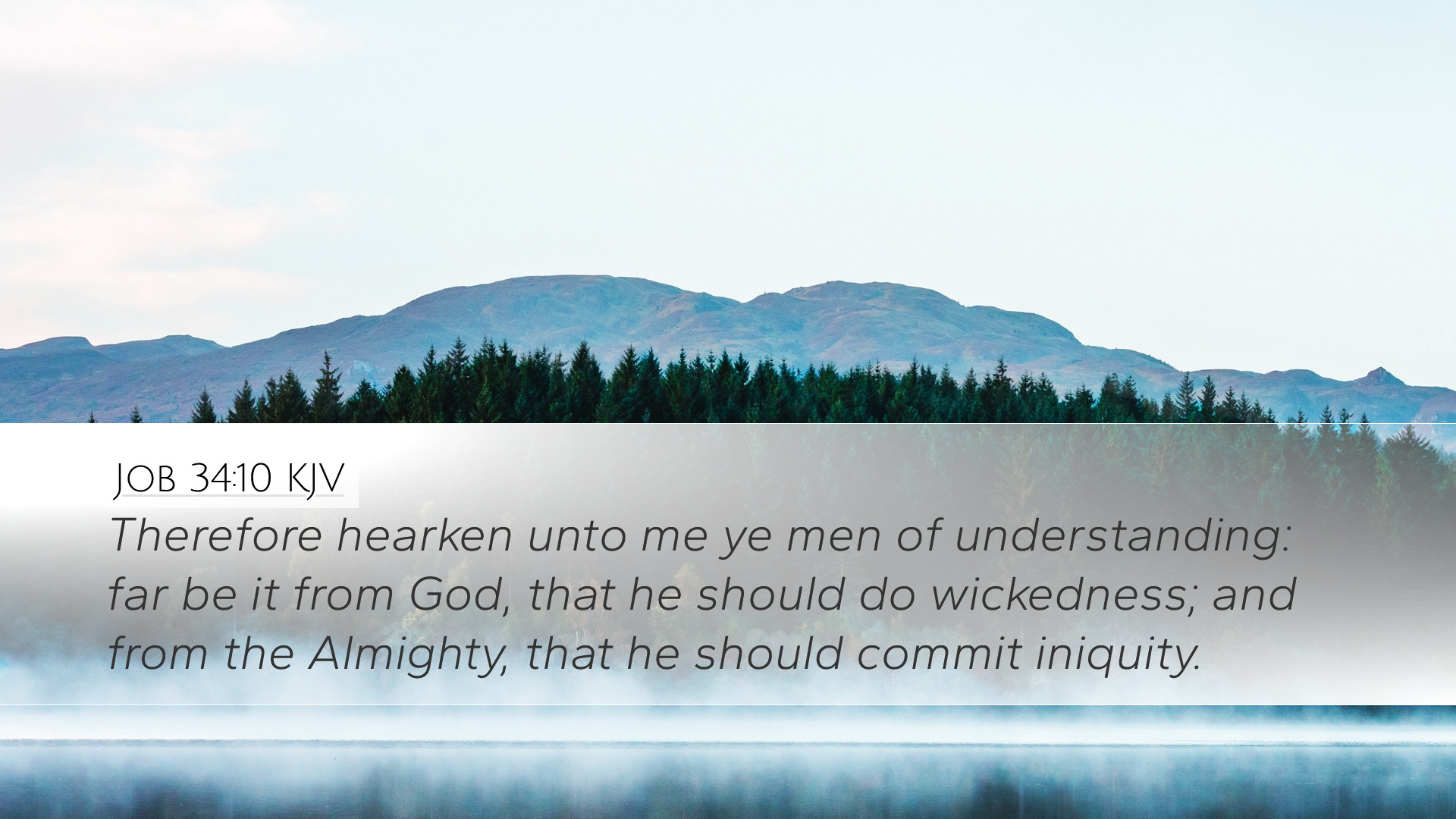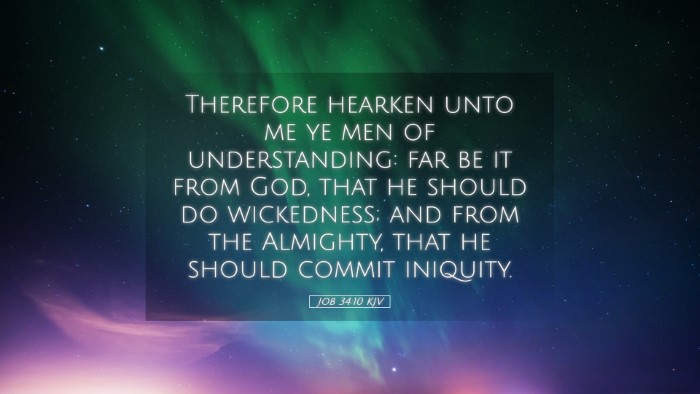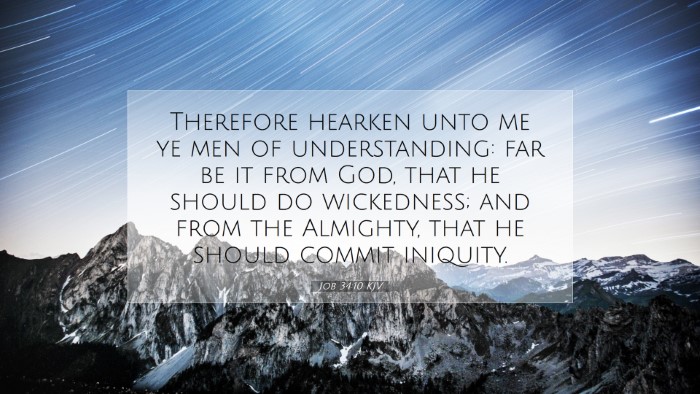Commentary on Job 34:10
Verse Context: Job 34:10 states, "Therefore hear me, you men of understanding: far be it from God, that he should do wickedness, and from the Almighty, that he should commit iniquity."
Introduction
This verse is crucial in the broader discourse of the Book of Job, where the character Elihu asserts God's justice and righteousness. Understanding this assertion enriches our comprehension of divine attributes and human suffering.
Insights from Commentaries
Matthew Henry's Commentary
Matthew Henry emphasizes the righteousness of God, affirming that it is impossible for Him to commit wickedness. He articulates that this assertion should provide comfort to the sufferer. By considering God's nature, believers are encouraged to trust in His righteousness even in times of adversity. Henry writes that as a man of understanding, one must assert the moral perfection of God, highlighting that God's ways and thoughts are higher than ours. He suggests that the intrinsic nature of God assures us of justice that surpasses human understanding.
Albert Barnes' Notes on the Bible
Albert Barnes supplements this view by elucidating the philosophical implications of God’s nature. He argues that if God could be wicked or unjust, it would undermine the very foundation of faith. According to Barnes, the justice of God is a central theme not only in Job’s narrative but throughout Scripture. He suggests that recognizing God’s unwavering righteousness ultimately disallows any human presumption of God engaging in evil. This realization calls believers to a deeper reliance upon God’s character when navigating life's trials.
Adam Clarke's Commentary
Adam Clarke provides a more detailed theological reflection, indicating that the meaning of “far be it” implies a stark contrast to the character of God. Clarke exclaims that God's essence is fundamentally good; therefore, it is impossible for Him to act contrary to His nature. He notes that this verse serves as a definitive statement about God’s moral uprightness and challenges the prevailing thoughts at the time surrounding divine justice. Clarke asserts that humanity's accusation against God’s character in suffering is unfounded and invites readers to reassess their understanding of divine providence.
Theological Implications
The combined insights from these commentaries drive towards a singular understanding of God's moral perfection. This drives home an essential theological point: the nature of God must inform our understanding of events in our lives that may seem unjust or inexplicable. As we engage with Job 34:10, we are reminded that God's actions, although mysterious to us, are always grounded in His unassailable righteousness.
Moreover, these reflections lead to critical questions for pastors and theologians: How do we help believers reconcile apparent suffering and injustice in the world with the firmly rooted belief in a righteous God? What pastoral care and theological grounding are necessary to maintain faith in the reliability of God’s character amidst life's trials?
The Call to Understanding
Job 34:10 functions as a clarion call for believers and ministers alike to strive for greater understanding. In the homiletic context, this verse can serve as a launching point for exploring God’s justice in sermons. Acknowledging that humanity's perspective is often limited, preachers can expound on the depths of God’s wisdom and righteousness, encouraging congregants to lean into faith rather than doubt during difficult times.
Conclusion
In conclusion, Job 34:10 is a profound declaration of God's impeccable character and a reminder of the need for the faithful to maintain confidence in God's justice. The integration of insights from Matthew Henry, Albert Barnes, and Adam Clarke encourages a holistic reading of this passage, allowing students, pastors, and scholars to engage meaningfully with the text. A commitment to understanding God's righteous nature equips believers to navigate their own experiences and minister effectively in a world that often wrestles with the question of divine goodness in the face of adversity.


